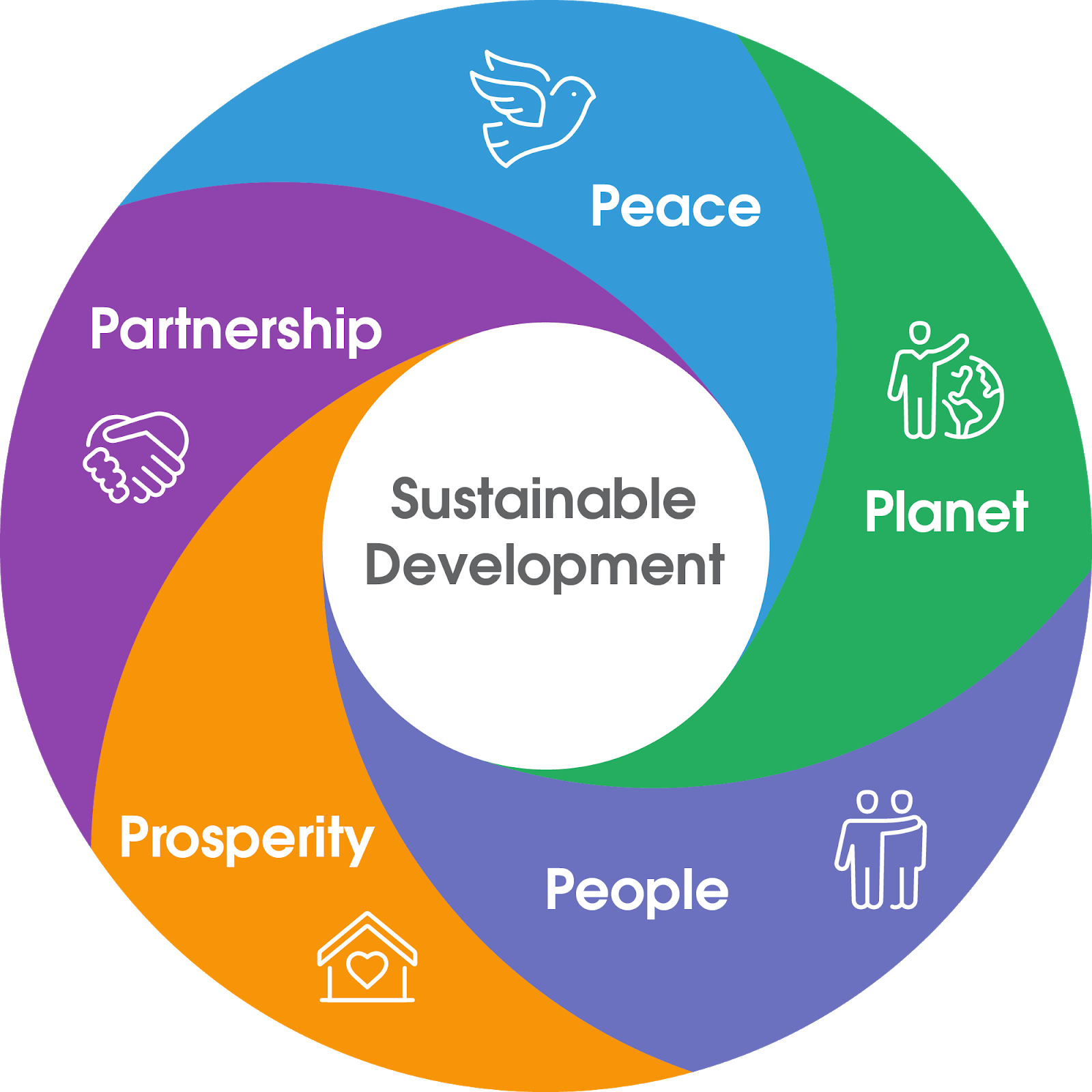Understand Sustainable Development
Learning Objectives
After completing this unit, you’ll be able to:
- Connect the SDGs to the problems they address.
- List the five dimensions of Sustainable Development.
What Problems Are the SDGs Trying to Solve?
Imagine you woke up one morning and discovered that all the world’s leaders had assembled to ask you—yes you—how to solve all the largest problems in the world. Where would you start?
The SDG are interrelated. There is an undeniable relationship between health and access to clean water. Education is critical for making strides towards gender equality. And so on. We can’t address these issues in isolation. Also, COVID has further highlighted these deep interlinkages, especially in terms of effects on some of the most vulnerable populations. The climate change, health, economic, and social crises we face in addition to the significant loss of lives is making achieving the Global Goals even more challenging. We must work together to solve them.
It can feel impossible to take stock of it all. Thankfully, the work of categorizing the problems of the world has already been done by an organization devoted to solving them—the UN. The SDGs are a blueprint for a better future, and for a more sustainable world.
The SDGs provide the framework for action. Most importantly, they give us clear, measurable and defined targets (169 of them to be exact) and indicators (232) that we all, regardless of sector, need to work towards.
The SDGs are the world’s to-do list.
What Is Sustainable Development?
Sustainable development meets the needs of the present without compromising the needs of future generations. The idea of sustainable development is multidimensional, and tackles the interdependencies among the SDGs with the goal of transforming our world for the better.
The 2030 Agenda for Sustainable Development is the basis of the SDGs and represents a shared global vision. The five dimensions of the 2030 Agenda—Prosperity, People, Planet, Peace, and Partnerships (The 5 P’s)—articulate the scope of this vision. This is an ambitious, systems-level approach to solve extreme global poverty, inequality, and climate change by 2030. At its heart is the principle of leaving no one behind.
The 5 P’s inform development policy and how work is ideally done. Work needs to account for the social, economic, and environmental consequences it generates. And actions need to be carried out in partnership with appropriate means of implementation to tackle problems in a holistic and integrated way. These problems are complex and require multidimensional solutions.
| Dimension |
Description |
|---|---|
| Prosperity |
The idea of ending extreme poverty for the current generation. |
| People |
Doing this in a way that leaves no one behind. |
| Planet |
Addressing climate change, the loss of biodiversity, and protecting the planet. |
| Peace |
Fostering peaceful and just societies. |
| Partnership |
Doing all of this together globally. The 17 SDGs are often referred to as a social contract. |

There’s Some Good News and a Long Way to Go
The good news is that we are seeing more and more cross-sector action around the SDGs. People are becoming more aware of them and organizing around them. For example, there is fast-growing momentum on climate action among corporations, as well as in other sectors.
That said, the deadline is fast approaching. Measurement and accountability are key to make sure that we continue to make sufficient progress over time. Salesforce addresses the SDGs through its technology, philanthropy, and other initiatives across its various communities. We encourage everyone—including you—to also take stock of how people can engage with and deepen their impact on the SDGs. In the next unit, we’ll show you how you can take action and encourage others to do the same.